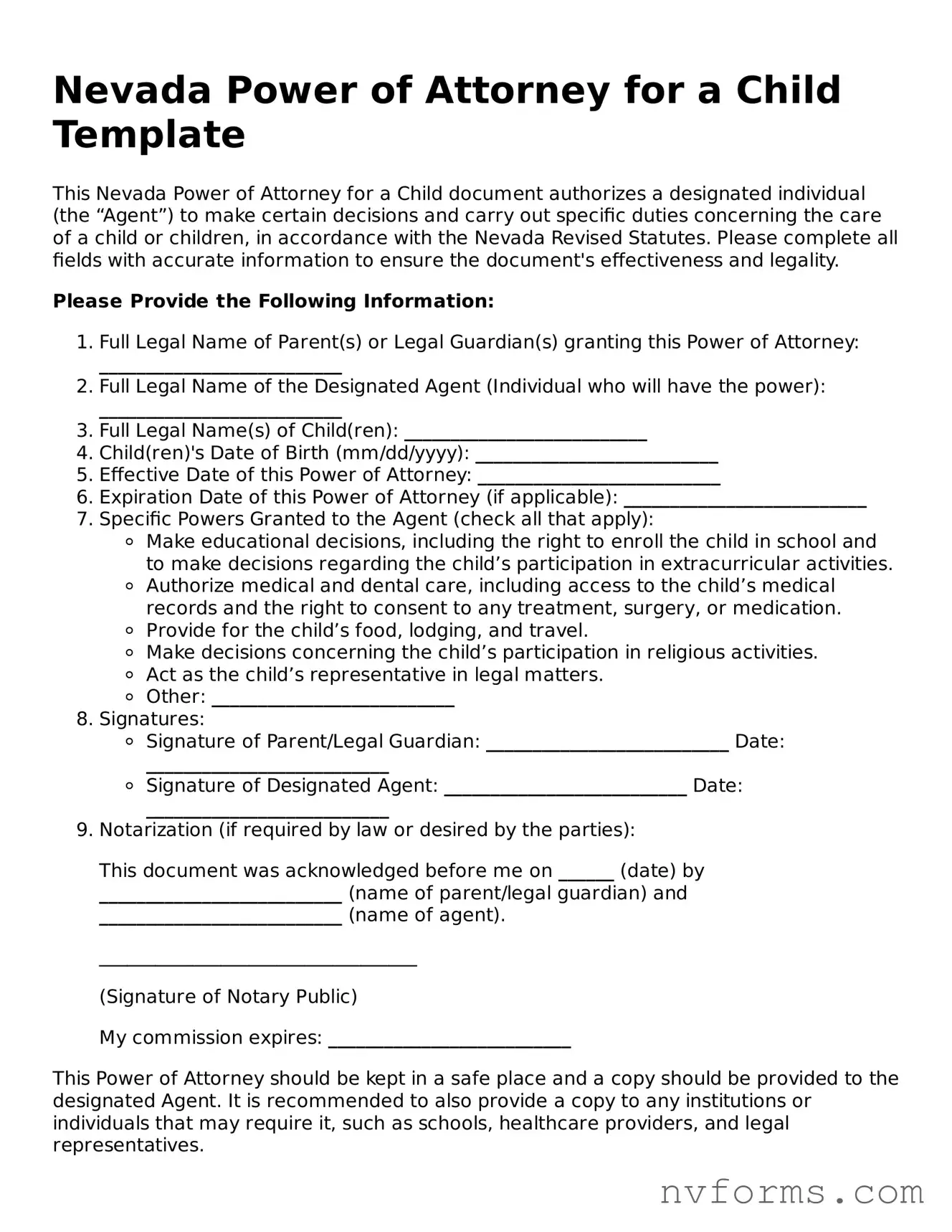Free Power of Attorney for a Child Form for Nevada
The Nevada Power of Attorney for a Child form is an official document that allows parents to grant authority to another individual to make certain decisions and perform specific duties regarding their child's care. This empowerment is pivotal in situations where parents might be unable to attend to their child's needs due to various reasons, such as illness, travel, or military service. It ensures the child receives the necessary care and support in the parents' absence, making it a critical safeguard for families.
Launch Editor

Free Power of Attorney for a Child Form for Nevada
Launch Editor

Launch Editor
or
⇩ Power of Attorney for a Child File
Don’t stop now — finish the form
Finish Power of Attorney for a Child online using an easy step-by-step flow.